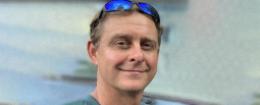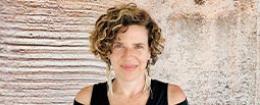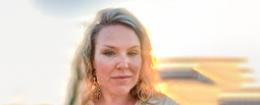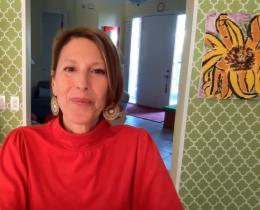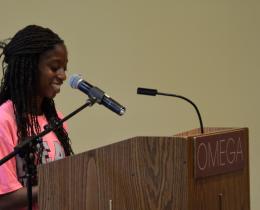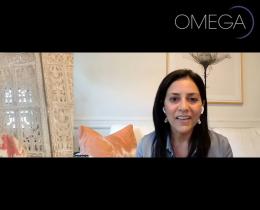Have you ever tried to take a dance class and felt like you had two left feet? Or gone to a café to write poetry and spent the whole time catching up on work emails?
You’re not alone. Creativity works in mysterious ways and we don’t always know how to tap into it. Many experts say finding your creative outlet is an important part of life. In fact, it’s good for your health.
Researchers have studied how art impacts our health—everything from music to dance to visual art to expressive writing—and found that it has amazing health benefits. Studies show that people who indulge their creative interests experience fewer negative emotions and more positive ones, feel less depressed, and even experience lower rates of anxiety and stress.
In short, being creative makes you happier.
Experts say creativity is not a personality trait that some people are born with and some are not. We are all wired to be creative and to keep learning throughout our lives. It’s never too late to start pursuing creative projects. Here’s advice from Omega teachers on finding the creative outlet that’s right for you.
Start a Daily Writing Practice
Best-selling author Cheryl Strayed writes every day. “I often recommend writing as a tool for self-discovery because it’s helped me so much. I use writing in different ways: I write as an artist but I also write when I’m just trying to work through something or make a tough decision. And I think, a lot of times, even people who aren’t writers will write in crisis. They’ll write in their journals after breaking up with someone, even though they haven’t written for two years. That’s because it’s a way to essentially practice your thoughts and see what’s there. Writing forces you to locate your clarity," she said.
Reclaim Your Creative Freedom
In Jane Davies’ artistic journey, she’s tried everything from being a potter to freelance artist to dabbling in bookbinding, print-making, beading, painting, textile art, design, and more.
“Every day of this journey offers new possibilities; I go to the studio to see what will happen rather than to make something specific happen," she writes. "I may start with an idea, but once I engage with the materials and become absorbed in the process, the muses take over. On a good day, that is. Some days I just show up, do all the same things, and nothing surprising or interesting happens. Still, I believe that the act of showing up and engaging is the most important activity I can do as an artist.”
Paint Intuitively
Stewart Cubley’s work has taken him throughout the world to work with groups in a process of inner exploration using the tool of expressive painting. He believes painting offers us access to the potential within the human heart.
In an article, he said, “If you can hold a brush, you can paint. Once it's removed from the strictures of talent, skill, accomplishment, interpretation, competition and awards, painting becomes a medium for challenge and change. The power inherent in painting is that it can awaken a wild vein of passion in you that will not go back to sleep. Through listening to your intuition—the color you are attracted to, the placement of the brush on the paper, the shape, the form, the image that wants to be born—a fire is ignited that jumps off the paper and into your life,” he said.
Improvise With Your Voice
In an interview with Elizabeth Lesser, Bobby McFerrin spoke about coming to songs with no expectations.
“Improvisation means coming to the situation without rigid expectations or preconceptions. The key to improvisation is motion—you keep going forward, fearful or not, living from moment to moment. That’s how life is. Remembering that life can be full of surprises is useful in any part of your life. You can try a new way of singing a song you’ve performed for years, a new way of showing your family your love for them, or a new recipe. Don’t just play the licks you know. We’re all improvising all the time—it’s good to recognize that and embrace it,” he said.
Move Your Body
JourneyDance™ founder Toni Bergins urges dancers to get out of their minds and into their bodies in her workshops. For 17 years, she has used dance as her own healing practice and place for emotional expression.
“Embodiment is our journey back into the personal temple of the soul, where we become present to ourselves in a sensational way,” she said. “As we sink into our true nature, we embrace and honor our natural desires of the heart. Embodied, we listen to our hearts’ callings and align with our true purpose, becoming open and present to the abundance of love that surrounds us.”
When it comes to finding you creative outlet, ask yourself, what is your heart calling for? How do you want to express it? Let the questions guide your creative calling and be curious.
Dream More
In Dan Millman and Sierra Prasada's book, The Creative Compass, they discuss the importance of taking time to wonder and use the world of dreaming to connect with your creative outlet.
"Do you long to create something of your own?" they write. "Then make time to relax deeply into dream. Set your mind loose to roam when you are stuck in traffic, for instance, or in the shower, cooking, or eating lunch at your desk. Let waves of ideas and images break over you."
Once you've connected to your desires, make time in your calendar to spend time on your creative outlet. Take a workshop or class. Take a notebook, musical instrument, or sketchpad to the park. Notice how it feels when you make time for your creativity and don't worry about the final product. Enjoy the journey.


